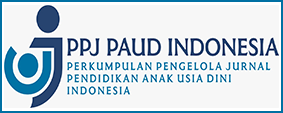Pengaruh Coding Game Terhadap Kemampuan Problem Solving Anak Usia Dini
DOI:
https://doi.org/10.53398/arraihanah.v5i1.632Keywords:
Early Childhood; , Coding Games; , Islamic Values; , Problem Solving;, ScratchJr;Abstract
This study aims to analyze the effect of implementing visual-based coding games on the problem-solving abilities of children aged 5–6 years at TK Muslimat NU 9 Sekar Kedaton. A quasi-experimental method with a pretest-posttest control group design was employed. The subjects consisted of 28 children divided into an experimental group (14 children) and a control group (14 children). The experimental group received an eight-week intervention using the ScratchJr application, while the control group engaged in conventional physical activity-based learning. Data were collected through participatory observation using the Problem Solving Observation Checklist (PSOC) adapted from Bers (2018) and a scenario-based task test. Data analysis was conducted using the Wilcoxon Signed Rank Test. The results showed a significant improvement in the experimental group (Z = -3.21; p < 0.01), with an average score increase of 42%, compared to only 12% in the control group. The study concludes that coding games enhance children’s problem-solving abilities systematically and support the development of Islamic values such as collaboration and perseverance in the learning process
References
Angeli, C., & Valanides, N. (2020). Developing young children’s computational thinking with educational programming environments: A systematic review. Computers in Human Behavior, 105, 106194. https://doi.org/10.1016/j.chb.2019.106194
Angeli, C., & Valanides, N. (2020). Developing young children’s computational thinking with educational robotics: An interaction effect between gender and scaffolding strategy. Computers in Human Behavior, 105, 106182. https://doi.org/10.1016/j.chb.2019.106182
Bers, M. U. (2018). Coding as a playground: Programming and computational thinking in the early childhood classroom. Routledge.
Cohen, L., Manion, L., & Morrison, K. (2018). Research methods in education (8th ed.). Routledge.
Creswell, J. W. (2014). Research design: Qualitative, quantitative, and mixed methods approaches (4th ed.). Sage.
Fadlillah, M. (2019). Desain pembelajaran anak usia dini berbasis nilai-nilai Islam. Kencana.
Fadlillah, M. (2019). Pendidikan anak usia dini dalam perspektif Islam. Jurnal Obsesi: Jurnal Pendidikan Anak Usia Dini, 3(1), 1–12. https://doi.org/10.31004/obsesi.v3i1.127
Kemendikbudristek. (2022). Permendikbudristek No. 5 Tahun 2022 tentang Penguatan Profil Pelajar Pancasila. Kementerian Pendidikan, Kebudayaan, Riset, dan Teknologi.
Kemendikbudristek. (2022). Panduan implementasi Kurikulum Merdeka PAUD. Kementerian Pendidikan, Kebudayaan, Riset, dan Teknologi.
Negrini, L., Limone, P., & Cubelic, J. (2022). Coding in early childhood education: A systematic literature review. Education and Information Technologies, 27, 7099–7120. https://doi.org/10.1007/s10639-022-11019-6
Nur Latifah. (2024). Wawancara Kepala TK [Komunikasi pribadi].
O’Flaherty, J., & Phillips, C. (2020). The use of technology in early childhood education and its impact on problem-solving and creativity. Early Child Development and Care, 190(8), 1174–1186. https://doi.org/10.1080/03004430.2018.1528326
Papadakis, S. (2020a). Using ScratchJr to foster young children’s computational thinking competence. International Journal of Technology Enhanced Learning, 12(1), 1–12.
Papadakis, S. (2020b). Using ScratchJr to foster young children’s computational thinking competence: A case study in a third-grade classroom. International Journal of Technology Enhanced Learning, 12(1), 1–12. https://doi.org/10.1504/IJTEL.2020.10028215
Papadakis, S., & Kalogiannakis, M. (2019). Evaluating a ScratchJr curriculum for early childhood education. International Journal of Mobile Learning and Organisation, 13(1), 113–127. https://doi.org/10.1504/IJMLO.2019.096479
Papadakis, S., Kalogiannakis, M., & Zaranis, N. (2021). The effectiveness of computer programming in early childhood education: A meta-analysis. Educational Media International, 58(3), 202–217. https://doi.org/10.1080/09523987.2021.1954457
Piaget, J. (1954). The construction of reality in the child. Basic Books.
Resnick, M., Maloney, J., Monroy-Hernández, A., Rusk, N., Eastmond, E., Brennan, K., ... & Kafai, Y. (2017). Scratch: Programming for all. Communications of the ACM, 60(11), 60–67. https://doi.org/10.1145/3138456
Resnick, M., et al. (2017). ScratchJr: Coding for young learners. https://scratchjr.org
Downloads
Published
How to Cite
Issue
Section
License
Copyright (c) 2025 Ar-Raihanah: Jurnal Pendidikan Islam Anak Usia Dini

This work is licensed under a Creative Commons Attribution-NonCommercial-ShareAlike 4.0 International License.







.png)




